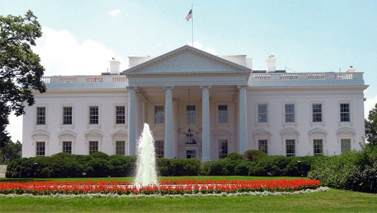According to the White House Council on Women and Girls, one in five students will experience sexual assault or rape during their time in college. In response, students at the College of William and Mary have stood up, and the White House is listening.
William and Mary Stands with Survivors founder Hannah Boes ’14 and Vice President of the Healthy Relationships branch of HOPE Jordan Taffet ’16 spoke to a newly formed White House Task Force to Protect Students from Sexual Assault, along with Sexual Assault Prevention Specialist Eric Garrison.
The White House recently published a memorandum detailing the goals of the task force.
“The prevalence of rape and sexual assault at our Nation’s institutions of higher education is both deeply troubling and a call to action,” the memorandum said. “Although schools have made progress in addressing rape and sexual assault, more needs to be done to ensure safe, secure environments for students of higher education.”
The task force, led by Vice President of the United States Joe Biden, looks to change the culture of sexual assault and rape on college campuses. In order to do so, Biden has said he will hold listening sessions with his White House Task Force to Protect Students from Sexual Assault before tabling his official recommendations in April. The first of these sessions was last week.
The White House contacted Garrison approximately two weeks ago to see if he and two students would be interested in attending the discussion.
While Garrison did not partake in the talks, as only students were allowed in the room, he said he felt very positively about the discussion.
“I have never under any leadership seen this much reform,” Garrison said. “There is the Cleary Act, there is the Dear Colleague Letter and other things leading up to this. But this task force is historic. They were grandstanding, they weren’t whitewashing. They really listened to us.”
Although Biden was not present at the discussion roundtable, both Boes and Taffet, along with students from other universities, spoke with the vice president’s advisors.
Going into the meeting, Boes said she was focused on responses to and support for sexual assault survivors on the university level. She said she felt that nationally enforced standards could improve the culture surrounding responses to survivors.
In the past year, the College community has dealt with various highly visible instances of sexual assault and rape. Sexual assault is among the most underreported crimes on college and university campuses, according to Williamsburg Chief of Police Don Challis.
“Following the discussion, I have no doubt that the people in charge of this task force have the very best of intentions and a serious commitment to working seriously on sexual assault prevention and intervention in academic institutions,” Boes said in an email. “The discussion also communicated to us that people at the very top are listening to our voices. … I returned from it ready to bring the fight back to William and Mary more than ever before.”
While the specifics discussed at the meeting are confidential, Taffet said the meeting covered policy issues at the administrative level. Both Taffet and Boes expressed hope that administrative changes will translate into changes on the student-to-student level.
The roundtable also discussed initiating sexual assault education programming before students enter college.
Boes said she also pushed for firm and clear requirements for institutions on educating students, faculty, administrators and staff about sexual assault, as well as for requirements for colleges to provide and disseminate information about reporting sexual assaults. Furthermore, Boes said she hopes that the College will implement requirements to ensure that each sexual assault survivor receives an adequate response from all corners of the College — from peers and faculty to staff, campus police and administrators.
“I would love to see the White House commit to funding for education, prevention, intervention and innovation on this subject,” Boes said. “Providing funding and enforcing standards are two things our federal government has access to in ways that many campuses don’t but would respond to positively. “
Taffet said the White House discussion encouraged him to continue to push for comprehensive sexual assault education and reform on campus.
“I think that there is a resistance at William and Mary to change things up because we have always done things [a] certain way,” Taffet said. “But we can change things up; we can hold ourselves, the administration and the world to a higher standard here.”


[…] White House Communications Director Jen Psaki ’00 first visited the College of William and Mary on a clear, sunny day in April. After touring campus with her mother, she called her father and told him that she was going to attend the College. […]